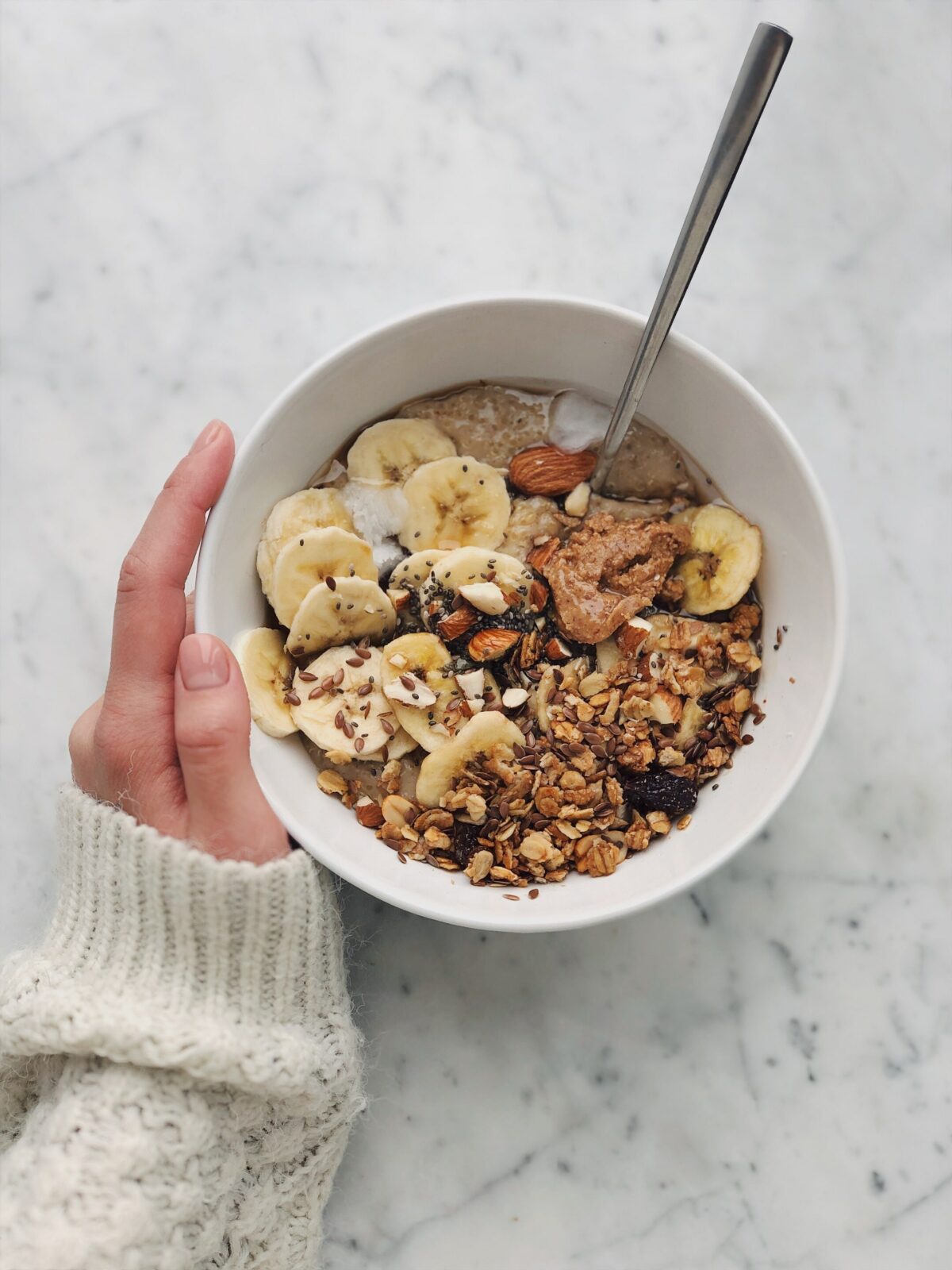Caloric intake should increase by approximately 300 kcal/day during pregnancy. This value is derived from an estimate of 80,000 kcal needed to support a full-term pregnancy and accounts not only for increased maternal and fetal metabolism but for fetal and placental growth. Dividing the gross energy cost by the mean pregnancy duration (250 days after the first month) yields the 300 kcal/day estimate for the entire pregnancy.1,2 However, energy requirements are generally the same as non-pregnant women in the first trimester and then increase in the second trimester, estimated at 340 kcal and 452 kcal per day in the second and third trimesters, respectively. Furthermore, energy requirements vary significantly depending on a woman’s age, BMI, and activity level. Caloric intake should therefore be individualized based on these factors.
https://www.ncbi.nlm.nih.gov/pmc/articles/PMC5104202
Macronutrients during pregnancy
Concerning protein, the recommended dietary allowance is 71 grams per day, but realistically, 1.1 g/kg body weight is more accurate. Carbohydrates should comprise 45-64% of daily calories and this includes approximately 6-9 servings of whole grain daily. Total fat intake should comprise 20-35% of daily calories, similar to non-pregnant women.
Nutrition Postpartum when breastfeeding
When breastfeeding your baby, kilocalorie needs are 500 kcals for the first six months and 400 kcals for the second six months (Academy of Nutrition and Dietetics, n.d.). This amount could be a little less or a little more depending on how much milk you are producing. For example, if you doing a combination of formula-feeding and breastfeeding your baby, you likely do not need the full 500 calories; Or, if you are breastfeeding your baby and also pumping additional milk, you may need more than 500 extra calories. Try to get the extra calories from high-quality food sources (See list below).
It is also important to remember than when producing milk, your body may want you to keep a couple of extra pounds on you in order maintain milk supply. Do not worry about a few extra pounds! It is also not unusual for some women to lose weight when breastfeeding. Everyone is different. Don’t compare yourself to anyone else! Focus on keeping a healthy weight for you and your baby!
List of important nutrients for breastfeeding, and where to find them.
- Calcium: milk; cheese; yogurt; fish with edible bones; tofu processed with calcium sulfate; bok choy; broccoli; kale; collard, mustard, and turnip greens; breads made with milk.
- Zinc: meat, poultry, seafood, eggs, seeds, legumes, yogurt, whole grains (bioavailability from this source is variable).
- Magnesium: nuts, seeds, legumes, whole grains, green vegetables, scallops, and oysters (in general, this mineral is widely distributed in food rather than concentrated in a small number of foods).
- Vitamin B6: bananas, poultry, meat, fish, potatoes, sweet potatoes, spinach, prunes, watermelon, some legumes, fortified cereals, and nuts.
- Thiamin: pork, fish, whole grains, organ meats, legumes, corn, peas, seeds, nuts, fortified cereal grain (widely distributed in foods).
- Folate: leafy vegetables, fruit, liver, green beans, fortified cereals, legumes, and whole-grain cereals.
Women who breastfeed require approximately 500 additional kcal/day beyond what is recommended for non-pregnant women.68 The estimate is derived from the mean volume of breast milk produced per day (mean 780 mL, range 450-1200 mL) and the energy content of milk (67 kcal/100 mL).69 During pregnancy, most women store an extra 2 to 5 kg (19,000 to 48,000 kcal) in tissue, mainly as fat, in physiologic preparation for lactation. If women do not consume the extra calories, then body stores are used to maintain lactation. It is not unusual for lactating women to lose 0.5-1.0 kg/month after the first postpartum month.70
Macronutrients during pregnancy
There are even less evidence-based recommendations for nutrient intake during breastfeeding compared to pregnancy. Lactation is considered successful when the breast-fed infant is gaining an appropriate amount of weight. The recommended daily allowance for protein during lactation is an additional 25 g/day.
Maternal factors such as stress, anxiety, and smoking can decrease milk production, but the quantitative and caloric value of breast milk does not change with dieting and exercise.76–83 Moreover, a woman’s weight, BMI, body fat percentage, and weight gain during pregnancy do not influence milk production.84–86
Reviewed and edited by Heather Emerson-Payne, RD, PhD, 2023.
References
Academy of Nutrition and Dietetics. Nutrition Care Manual. Comparative Standards, Breastfeeding/Lactation. https://www-nutritioncaremanual-org.wku.idm.oclc.org/topic.cfm?ncm_category_id=1&lv1=272980&lv2=144973&lv3=269509&ncm_toc_id=269509&ncm_heading=Normal%20Nutrition. Accessed July 12, 2023.
© WKU {2022} All rights reserved.
